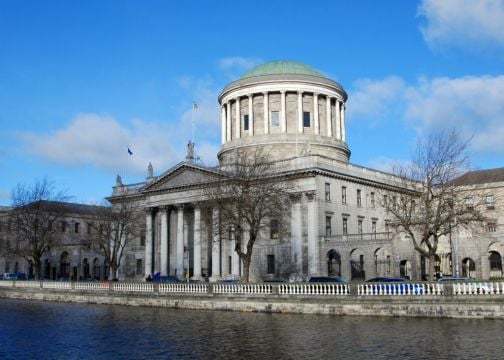The Irish Human Rights and Equality Commission wants the High Court to permit it to make submissions in two lead challenges to the final report of the Commission of Investigation into Mother and Baby Homes.
The lead cases are by retired nurse Philomena Lee (88), who lives in England, and by Galway-based Mary Harney (72), both former residents of mother and baby homes.
Both will be heard in November.
Dealing on Monday with case management issues, Mr Justice Garrett Simons said he would hear IRHEC’s application on Friday.
The Commission wants to be joined to the cases as an amicus curiae, an assistant to the court on legal issues.
Application unopposed
Patricia Brazil BL, for IRHEC, said both applicants were consenting to the Commission’s application and the State respondents were neutral, with the effect the application was unopposed.
The judge made directions for the exchange of further legal documents in preparation for the hearing of the lead cases on November 17th and 18th.
He was told by Katherine Donnelly SC, for the State respondents, they will file further short affidavits.
The judge also made directions concerning an application for discovery of documents in a third case, that of Mari Steed.
The discovery application, by Siobhán Phelan SC, for Ms Steed, will be heard on November 19th. A core issue in that regard concerns the ambit of section 12 of the Commission of Investigation Act 2004 which deals with the Commission’s power to make a decision to share information with a person who has given evidence to it.
Lead cases
The three cases are among a number of challenges brought over the Commission’s report.
The lead cases will address a core claim in all cases concerning the ambit of section 34 of the 2004 Act.
The applicants claim section 34 required them, as persons unnamed but allegedly identifiable in the commission’s final report, to be given the commission’s draft report and the opportunity to make submissions on that. The failure to do that breaches section 34 and their fundamental rights under the Constitution and European Convention on Human Rights, they claim.
The challenges are against the Minister for Children, the Government, Ireland and the Attorney General.
The applicants claim the final report does not accurately reflect their evidence to it and breaches their rights to fair procedures and natural and constitutional justice. Other issues include the nature of a redress scheme and the constitutionality of provisions of the 2004 Act.
Background
Philomena Lee was sent to the Sean Ross Abbey Mother and Baby Home in Roscrea, Co Tipperary, when she became pregnant aged 18. When her son was aged three, he was sent for adoption by a US couple.
Her life was the subject of a book, The Lost Child of Philomena Lee by Martin Sixsmith, and a film, ‘Philomena’, directed by Stephen Frears and starring Judi Dench.
Her solicitor, Wendy Lyon of Abbey Law, said in an affidavit the Commission’s findings included there was ‘no evidence’ for the opinion of some women their consent to adoption was not full, free and informed.
Ms Lee’s evidence was that she was not given any time to consider a document which she was told to sign and which relinquished her rights to her son, Ms Lyon said.

Mary Harney, born in the Bessborough Home in Cork in 1949, claims she is readily identifiable in the commission’s report and was thus entitled to an opportunity to make submissions on the findings concerning her in the draft report.
Had she had that opportunity, she could have said the commission should not have omitted evidence she gave to it of abuse and neglect while boarded out between 1951 and 1954, she claims.
Mari Steed, of Virginia, US, born in the Bessborough Mother and Baby Home, Cork, in 1960 and adopted by an American family in 1961, claims her rights were damaged by being subject to the Quadrivax vaccine trial while in Bessborough.
She says she was entitled to an opportunity to address the commission’s finding there was no evidence of injury to the relevant children as a result of the vaccines.







